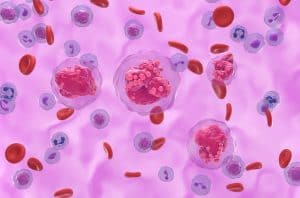
CQC revelations continue
pharmafile | June 21, 2013 | News story | Sales and Marketing | CQC, NHS, NICE
The turmoil at the Care Quality Commission (CQC) shows no sign of abating as MPs may summon the current leadership for questioning following yesterday’s revelation of the names of staff mentioned in a damning independent report.
The names had been redacted in a report by Grant Thornton into the regulator, which is responsible for overseeing standards across hospitals and care homes.
The row stems from the CQC’s failure to correctly oversee issues of mother and baby mortality at University Hospitals Morecambe Bay NHS Foundation Trust (UHMB).
Earlier this week the CQC published the Grant Thornton report, which found evidence ‘of the apparently deliberate suppression’ of an earlier internal report commissioned by senior CQC management in October 2011, and which was critical of CQC’s performance over UHMB.
In a letter to health secretary Jeremy Hunt the chairman of the CQC, David Prior, and its chief executive David Behan revealed the names of four staff present when, it is alleged, a discussion about deleting the first report occurred.
They are former chief executive Cynthia Bower and her deputy Jill Finney, who have both since resigned, plus two current members of staff: media manager Anna Jefferson and Louise Dineley, head of regulatory risk & quality.
The letter to Hunt explains: “The [Grant Thornton] report identifies the key actions and decisions taken by the individuals involved although, as the report makes clear, some of these actions are disputed.”
Hunt told MPs this week: “There no should be no anonymity, no hiding place, no opportunity to get off scot-free for anyone at all who was responsible for this. This is the problem we have to address in the NHS: all too often, people are not held accountable for what went wrong.”
The CQC had been criticised for publishing the Grant Thornton report with the names anonymised, although Behan said this was done after receiving legal advice that there were data protection issues to consider.
The decision to reveal them followed disquiet in Parliament and after the information commissioner Christopher Graham told BBC Radio 4’s Today programme that there is no blanket ban on publishing names in reportsm, if disclosure was in the public interest.
“I have total confidence in the new leadership of the CQC,” Hunt went on. “They are on the side of the public. They understand that the CQC’s job is to be the nation’s whistleblower-in-chief.”
Not everyone is impressed, however, with House of Commons health select committee chairman Stephen Dorrell saying he wanted Behan and Prior to explain the CQC’s response to the deaths at UHMB.
“What’s important to patients is that the people who are now in charge of the CQC have to demonstrate in public, convincingly and quickly, how they are going to build the effectiveness of this organisation so that it can deliver the regulatory function that we pay for and need,” he said.
In January, the select committee’s report on the CQC said it needed to sort out the way it was run ‘as a matter of urgency’.
Adam Hill
Related Content

NICE recommends migraine treatment for NHS use
The National Institute for Health and Care Excellence (NICE) has shared draft guidance recommending AbbVie’s …

GSK’s Jemperli recommended by NICE for endometrial cancer treatment
GSK has announced that the National Institute for Health and Care Excellence (NICE) has recommended …

NICE recommends SC treatment of AbbVie’s Tepkinly for patients with DLBCL
AbbVie has announced that the National Institute for Health and Care Excellence (NICE) has recommended …







